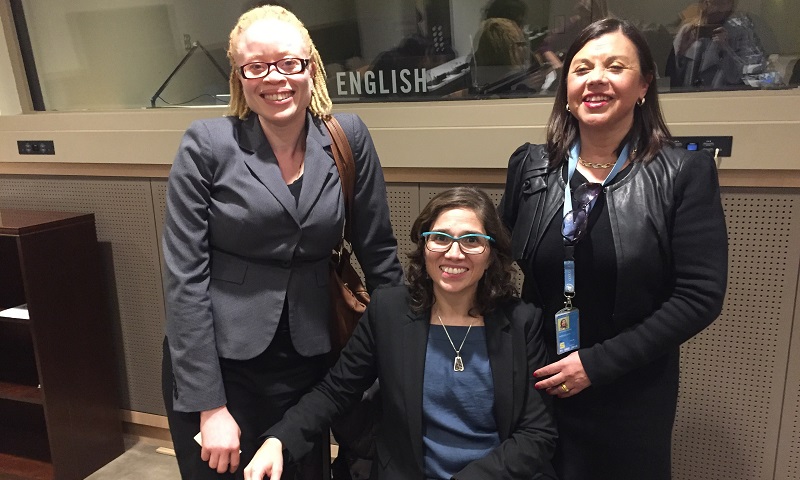
Disability is an evolving concept with a tendency to present itself when the environment does not support the needs of an individual.
It has been ten years since the adoption of the Convention on the Right of Persons with Disabilities (CRPD). In that time we have learned that accessibility for all is a human right. We have also learned to support independence and how to increase awareness. Where to next? An event held last month at UN Headquarters not only provided the opportunity to observe the successes of the CRPD, but to also discuss moving forward with the convention.
Ikponwosa Ero, an independent expert on the enjoyment of human rights by persons with albinism, spoke about what benefits the CRPD can provide for persons with albinism.Ms Ero told a story of being whipped as a child because she required larger font in the classroom as her albinism affected the development of her vision. She explained that the CRPD has the ability to protect persons with albinism from the social exclusion she faced.
Maria Soledad Cisternas, Chairperson of the Committee on the Rights of Persons with Disabilities, outlined the importance of the CRPD being discussed in other contexts including human rights, gender equality and women’s rights. She acknowledged the success of the inclusion of the rights of persons with disabilities in the latest New Urban Agenda at the Habitat III conference in Quito, Ecuador in October 2016 as a great achievement.
Catalina Devandas, UN Special Rapporteur on the Rights of Persons with Disabilities, pointed out that one important element that should be worked on by all is to increase accessibility to support people with disabilities to live independently. Ms Devandas explained that all avenues should be explored with a particular focus on the benefits of technology to support independent living.
While the CRPD has achieved a great deal, there is still more to do to ensure the Goals of the 2030 Agenda are achieved and no one is left behind.
Phillip Taula, Ambassador, Deputy Permanent Representative of New Zealand, noted the appointment of Robert Martin as the first person on the Committee on the CRPD with an intellectual disability as a success of the convention and significant step towards achieving the Sustainable Development Goals.
The event demonstrated accessibility with the use of international sign language, live footage of the speakers appearing on a large screen with written text displayed below. It was an example of how organisations can conduct meetings and events to ensure accessibility to all.

With the convention ratified by 168 member states, CRPD is moving fast towards universal ratification. The side event provided an excellent opportunity to reflect on the successes of the CRPD while promoting hope and excitement for the next ten years of the convention. It reinforced that the leadership associated with the CRPD is passionate and committed to ensuring that no one with a disability is left behind.
To learn more about our work with persons with disabilities visit social.un.org/disabilities
 Welcome to the United Nations
Welcome to the United Nations